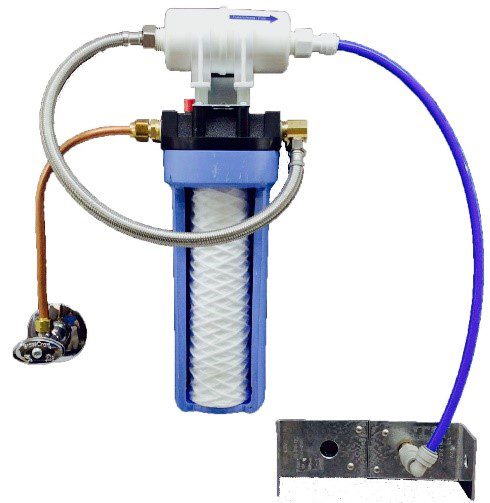 In an effort to protect children from the harmful effects of lead exposure, the state of Michigan has enacted the Michigan Filter First law—a landmark regulation aimed at ensuring safe, clean drinking water in schools and childcare centers. This blog explains what the law requires, who it affects, and how your facility can meet compliance before the key deadlines.
In an effort to protect children from the harmful effects of lead exposure, the state of Michigan has enacted the Michigan Filter First law—a landmark regulation aimed at ensuring safe, clean drinking water in schools and childcare centers. This blog explains what the law requires, who it affects, and how your facility can meet compliance before the key deadlines.
Lead exposure, especially in children, poses serious health risks including:
Because children are particularly vulnerable, Michigan’s Filter First law puts prevention front and center. By prioritizing filtration at the source, the law helps reduce lead exposure in the places where children spend most of their time: schools and licensed childcare centers.
The law applies to all public and private K–12 schools and licensed childcare facilities in Michigan, regardless of:
If your facility serves children and includes any tap where drinking or food prep occurs, compliance is mandatory.
Michigan’s Filter First law goes beyond just installing filters. It introduces a comprehensive water safety approach that includes the following components:
By January 24, 2025, every facility must develop and submit a Drinking Water Management Plan (DWMP). This plan must include:
All consumptive fixtures must be equipped with certified lead-reducing filters by the end of the 2025–2026 school year.
Note: Fixtures used only for handwashing (like in bathrooms) generally don’t qualify—unless they’re also used for filling cups or consumption.
Once filters are installed, water testing must begin:
The Filter First law reflects a growing recognition that lead contamination is not just an infrastructure problem—it’s a public health issue. Prevention, accountability, and long-term planning are central to this legislation.
By following the guidelines and meeting deadlines, schools and childcare providers can safeguard their students and staff while staying compliant with state law.
If you’re unsure where to begin, ChemREADY can help. We offer:
Our goal is to make compliance simple and cost-effective—because every child deserves safe, lead-free drinking water.

Clean drinking water should never be a question. With proper planning, the right equipment, and ongoing monitoring, your facility can meet Filter First compliance and help protect future generations from lead exposure. Need help with your Drinking Water Management Plan or filter installations? Contact ChemREADY today to speak with a water safety specialist.
Adeline Johnston is the Marketing and Communications Specialist at ChemREADY where she leads brand strategy, content development, and customer engagement efforts. With a background in digital marketing and a focus on education, Adeline creates targeted campaigns and multimedia resources that support ChemREADY’s full range of services, including Legionella management, ANSI/AAMI ST108 compliance, boiler and cooling tower treatment, wastewater processing, and industrial water quality solutions. Passionate about making complex topics accessible, she plays a key role in helping clients stay informed, compliant, and confident in their water treatment programs.